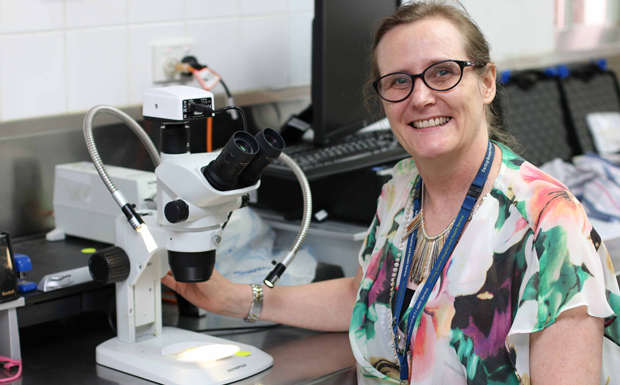
August 24, 2018
The Darling Downs Public Health Unit is investigating reports of an outbreak of gastroenteritis allegedly linked to a fast food outlet in Kingaroy.
Because the investigation is ongoing, the food outlet cannot be named.
Darling Downs Public Health Unit Director Dr Penny Hutchinson said the unit had received several reports of people with gastroenteritis.
“The Public Health Unit, in collaboration with the South Burnett Regional Council, is currently investigating these claims,” Dr Hutchinson said.
Gastroenteritis, or “gastro”, is an infection of the stomach and intestines which can be caused by either bacteria, bacterial toxins, viruses or parasites.
Symptoms include vomiting, diarrhoea, nausea, stomach cramps, fever, muscle aches and pain, bloating and generally feeling unwell.
It is highly infectious and can be easily passed from person to person.
People can also become infected from consuming contaminated food or drinks.
People who are sick with gastro are infectious and can spread the illness even after their symptoms have settled.
Adults with gastro should not return to work until 24 hours after the symptoms have settled.
People who are food handlers or with some types of gastro should not return to work for at least 48 hours after symptoms have settled.
Children with gastro should not return to childcare or school until the diarrhoea has stopped for 24 hours or up to 48 hours for some conditions.
Generally, treatment for gastro includes rest, drinking plenty of fluids, either water or oral rehydration drinks which are available at chemist shops.
“If you are unable to keep fluids down or have very young child with gastro it is important to seek medical advice as dehydration can be a serious complication,” Dr Hutchison said.
* * *
General suggestions on how to prevent gastro:
- Wash hands thoroughly with soap and water after going to the toilet or changing nappies, after smoking, after using a handkerchief or tissue, or after handling animals
- Wash your hands thoroughly with soap and water before preparing food or eating
- Use disposable paper towels to dry your hands rather than cloth towels, since the bacteria can survive for some time on objects
- Do not handle raw and cooked foods with the same implements (tongs, knives, cutting boards) unless they have been thoroughly washed between uses
- Keep all kitchen surfaces and equipment clean
- Keep cold food cold (below 5 °C) and hot food hot (above 60 °C) to discourage the growth of bacteria
- Make sure foods are thoroughly cooked
- Clean the toilet and bathroom regularly, especially the toilet seat, door handles and taps
- Clean baby change tables regularly























